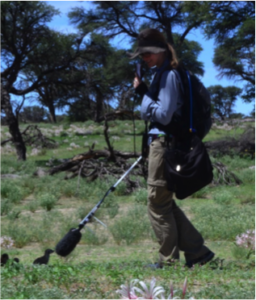 Vocal communication in meerkats: individual variation and dominance effects
Vocal communication in meerkats: individual variation and dominance effects
University of Zurich, Department of Evolutionary Biology and Environmental Studies
Contact: megan.wyman@ieu.uzh.ch
Communication is crucial to social organization, reproduction, and social interactions in group living cooperative species. Individual variation within signals may be affected by a variety of sources which influence the information content of the signal. My research interests involve examining these sources of variation within vocalizations of free-living meerkats (Suricata suricatta). We will explore the social, environmental, maternal, and genetic influences on individual variation in acoustic signals using repeated audio recordings of specific individuals. One specific area of interest involves studying the effects of dominance on vocalizations.
In many species, information on dominance is contained in signals that are often held reliable by costs, constraints, or risks. Producing or attending to this information can be adaptive if it results in increased fitness benefits, e.g., reduced social conflict or physical harm, or increased reproductive fitness or foraging efficiency. In such cases, we would expect animals that transition from subordinate to dominant roles to show changes in signal parameters that communicate social status. This is especially true if these signals are constrained by anatomy or physiology that changes during these dominance transitions. This project will examine the mechanisms and functionality of vocal signature changes associated with attaining social dominance in meerkats. Specifically, I will examine potential changes in vocal production anatomy and acoustic parameters through repeated x-ray imaging and audio recordings. Playback studies will be used to test responses to dominance information within calls.

